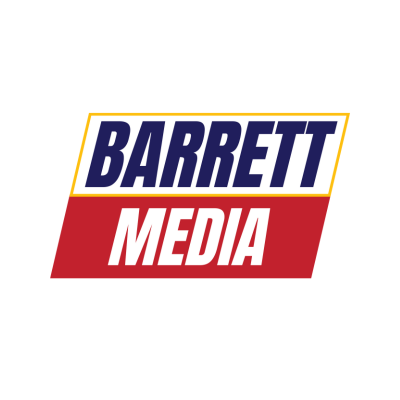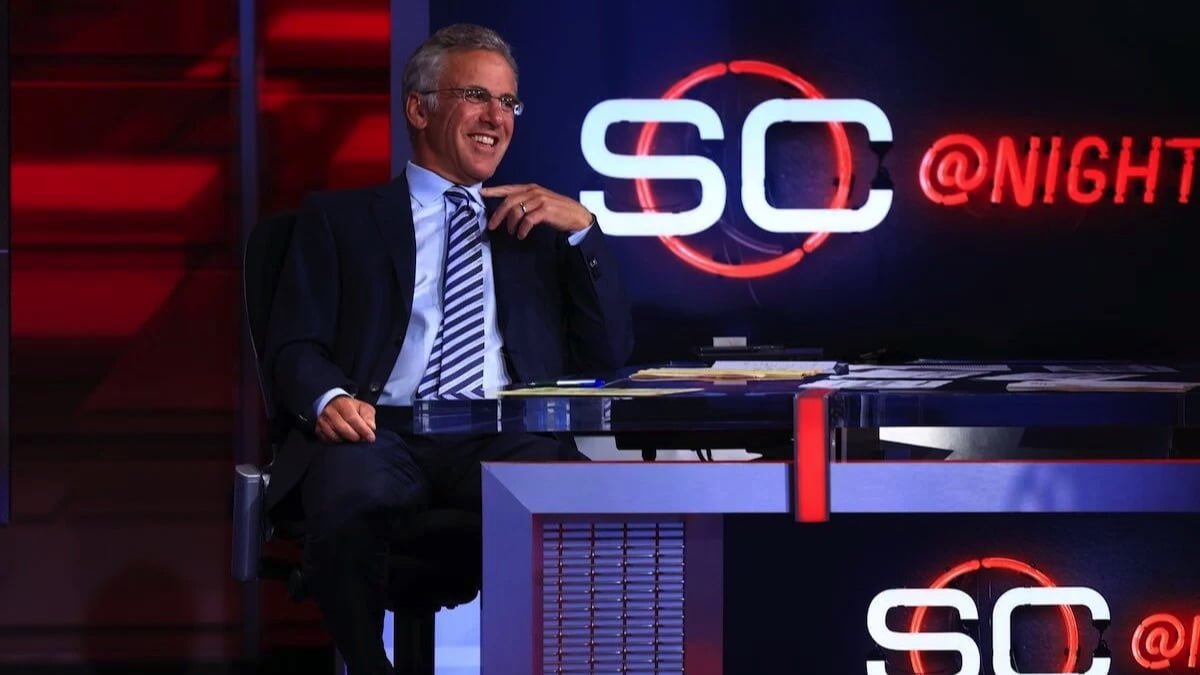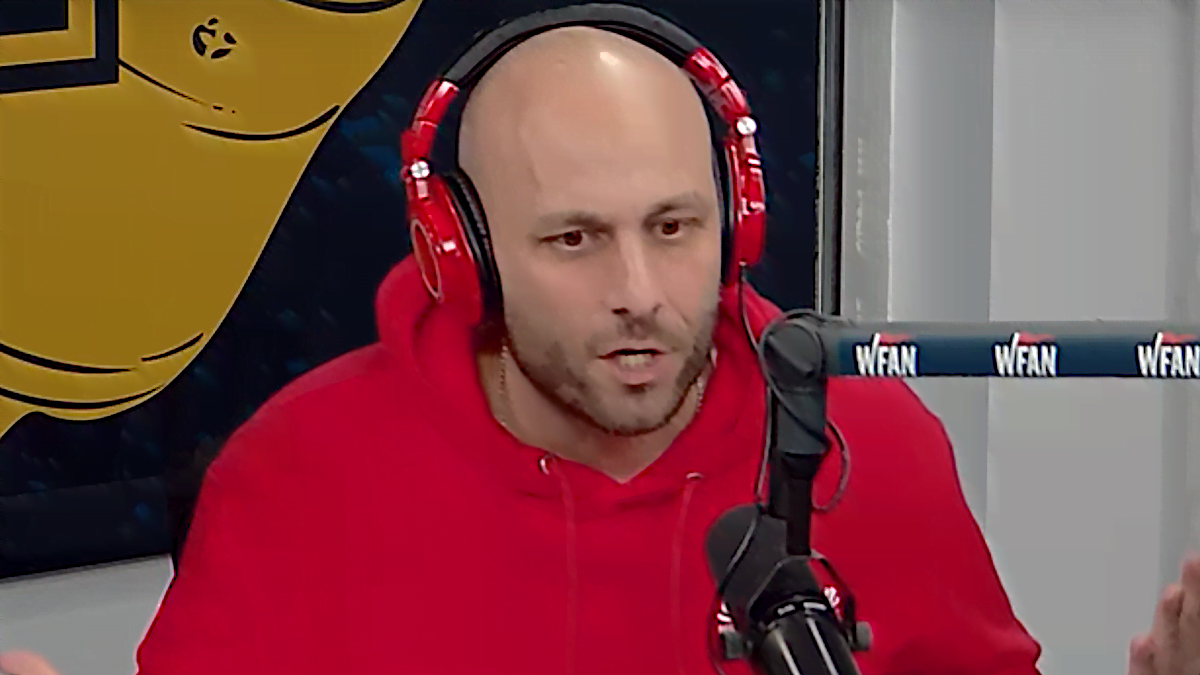Will East has worked tirelessly to grow SuperTalk Mississippi Media for the past eight years. He understands the changing media landscape and meets the challenges of attracting new audiences on-air and online with great tenacity.
As a young, aspiring broadcaster attending Ole Miss, East observed other students taking classes that did not interest him. He realized that he required hands-on experience to accomplish his objectives.
He interned at the Mississippi Radio Group in Tupelo. He was dedicated and didn’t let minor things like sleep stop him from improving. He recalls working beyond his three-hour shift, even returning on Saturdays to assist with remote broadcasts. East was passionate about the radio business and relished every opportunity to improve himself. He followed a pattern of preparation, opportunity, and blessing, eventually leading to him being hired by the company and dreaming of more significant achievements.
Mississippi may be over 1,000 miles from New York City, but it is the proud home of SuperTalk Mississippi Media, a leading media network. However, when Will East became the program director eight years ago, he noticed a lack of consistency and a need for an improved digital presence.
Today, the network has 17 locally produced podcasts and a TV channel that is readily accessible on the statewide cable provider, right next to The Weather Channel.
The network is preparing for its digital evolution by offering on-demand highlights during sports coverage and other premium services. These offerings will make the network competitive with other big market competitors.
Despite hearing jokes about the Magnolia State, Will East chooses to focus on the positive offerings for the residents and consumers of SuperTalk Mississippi Media.
Ryan Hedrick: Could you please summarize SuperTalk Mississippi Media and its role in the media industry?
Will East: We’re a network of stations, a TV channel, and digital platforms covering Mississippi. There are 12 SuperTalk stations in markets throughout Mississippi. You can drive from Corinth, Mississippi (the very top of the state) down to the Gulf Coast (Ocean Springs) and listen to the same programming throughout. The entire state’s programming is the same on weekdays from 6 a.m. to 6 p.m.
Mississippi doesn’t have a major market, so the idea was that we are going to create a major market by making everything the same. When you speak on SuperTalk Mississippi, you speak to three million potential listeners.
Our largest area is Central Mississippi, the Jackson Metro area. Let’s say this area has about 250,000 people living in it. In the grand scheme of things, it’s not a St. Louis or Dallas-sized market, but if you start adding in Jackson, Biloxi, Tupelo, and other areas, we can create a large market. That’s what we did using multiple radio stations and a TV channel. If there’s an advertiser that wants to come on with us, they’re heard all over the state in all 82 counties.
RH: How did you first become involved with SuperTalk Mississippi Media? Could you share your journey and the steps you took to reach your current position as the Network Program Director?
WE: I worked for a group of music stations in Tupelo, Mississippi, and I did some podcasts early in the podcast realm. Through word-of-mouth, SuperTalk [executives] knew about me, and they had an opening for the program director position. I interviewed for the job, and eight years later, here I am. This job is fun.
I am a Mississippian by birth. I felt like I was the only person in the world who loved hearing about famous people from Mississippi, the good things happening, and how Mississippi could progress and get better. I thought I was the only one who wanted to hear that stuff until I found SuperTalk Mississippi, an entire network dedicated to ensuring the Magnolia State did better and celebrated the things we do well.
RH: What skills and qualifications did you bring from Tupelo that equipped you for this role?
WE: I listened to SuperTalk before I got the job, and I always thought this was the direction I wanted to go in my career; I didn’t know exactly what it looked like. I understood that podcasts and being hyper-local were important things. I always envisioned doing something like this. I didn’t know it would be a network.
I thought it would be a group of shows that had one purpose. When I discovered SuperTalk Mississippi, I realized that the concept I had in my head already existed. When I got here, we just needed to clean up the edges a little bit and make everything more uniform.
Since I arrived, we have grown tremendously. We’ve added more stations, especially on the Mississippi Gulf Coast, one area where Mississippi is growing. We also added a TV channel, and we did that during COVID.
When the pandemic hit, we asked ourselves where the growth opportunities were. We were already videoing some of our shows. The idea was that we would have the same programming across the state.
RH: How are you ensuring that you are delivering the highest quality product to the state through the adjustments you make?
WE: Most of our talent is really experienced, but we have times when we need fill-in hosts, so I’ll work with those guys and gals to get their skills up to snuff. We work a lot with talent on delivery and ways of saying things that are more entuned with the ways we would like them to be said.
For instance, I hate saying, ‘All of you listening,’ I would rather have my hosts use the word “You,” that’s a huge thing to me. Another thing is always, to tell the truth. This is something that we teach our people from the get-go. If you have a belief that goes against the grain of what a majority of the audience feels, you have to tell the truth about how you feel. If you’re on the air for three hours, the truth about how you feel will eventually come out.
Production is another responsibility that I have. We have 26 stations and 12 SuperTalk stations, so there’s a constant need for spot production and imaging production. I have people who help me, but I have to ensure everything gets done. Now, we’re doing many more podcasts on the digital side.
Right now, we are at 17 different podcasts daily. Some are terrestrial shows that we turn into podcasts, and some are podcasts only. For instance, the Thunder & Lightning Podcast is one of the most popular podcasts in the state of Mississippi dealing with state sports. Brian [Hadad] and Robbie [Faulk] are doing some amazing things, and they have a large audience that keeps growing.
Our network is about to launch another podcast where Mississippi veterans share their stories. We are trying to get some of these older veterans who don’t have enough time to tell their stories before it’s too late. So far, we’ve talked to about 70 veterans and put those interviews into podcasts. I’m also managing all the YouTube distribution.
We clip out all the guests that come onto our shows and put them on YouTube. We upload about six videos a day to that platform. We have a social media person, but I make sure that everyone is talking to each other so that we know what content we can distribute on our respective social media platforms.
RH: What educational and professional experiences have helped shape your career?
WE: I started at Ole Miss, I always wanted to be in TV, but I didn’t know exactly what direction I wanted to take. Maybe I thought I was going to be a weatherman or sportscaster or something like that. The radio people were having more fun, so I decided to go the radio route. I decided early on that a lot of things that I learned in the classroom didn’t apply; the things that I learned at the Student Media Center did apply.
They were working on the commercial radio station at Ole Miss; they even had to sell airtime, so I decided that was the way to go. The best way for me to learn was hands-on. I went to the Mississippi Radio Group, which is a small group of radio stations in North Mississippi, and told them I wanted to be an intern. They told me to show up for three hours each day. I showed up at 6:00 a.m. when the first show aired, and I didn’t leave until 6:00 p.m. when the last show aired. I became known as “Super Intern Will.”
I did that for an entire year, no money, no nothing. I showed up on Saturdays, and we did remotes and things like that. Eventually, they started paying me. I decided to make myself indispensable to that company. I would have done anything they wanted me to do. I would have anchored traffic if they wanted me to. They needed people to do some on-air and production stuff, so I went that way.
RH: Can you tell me about the role of SuperTalk Mississippi Media in the local community? How does the network help promote important issues and discussions within the state?
WE: For many years, Mississippi was the type of place where they would elect a politician, and they would keep electing that politician for many years. They would go to the Capital and vote on stuff, and nobody knew what they voted on until they read it in the paper a couple of months later.
SuperTalk Mississippi was the first one to shed light on what those lawmakers were doing and what they were voting on. We really changed the dynamics of the state. SuperTalk Mississippi started many years ago, but it started to take off in the late 90s and early 2000s.
We were influential in the state legislature. We would say something, and you heard state legislators talking about it in the hallways of the capitol. If you go into the Mississippi State Capitol, there’s a room where all the lawmakers go and drink coffee, and I’m certain they listen to SuperTalk Mississippi before they go out to the Senate floor. The network has been influential in pushing bills.
Our talk show hosts are opinionated, and they bring legislators on, and we bring people on from both [political] sides. We get labeled as a conservative media outlet, and we are basically conservative. We also bring on a lot of Democrats and people that disagree with us so we can talk it out.
The people of Mississippi now know what their senator or representative is voting for because we talk about it. So, we bring the information to the people, and that’s something that a lot of states don’t have.
Generally, if you want to find out what’s going on at your state legislature, you must find someone who covers that and follow them on Twitter. SuperTalk Mississippi brings it to you every day. If it’s happening in the state of Mississippi, you can hear about it on SuperTalk Mississippi.
RH: When selecting and developing new programs and shows for SuperTalk, what factors do you consider to ensure they resonate well with your audience?
WE: If it’s a show that the network is producing, usually, we have an idea of the direction we want to go with it. The last show we launched on the network was called Good Things, hosted by Rebecca Turner, which has been on the air for six years.
When we develop programming, we stick with it for a while. It’s rare for us to put on a show that gets yanked off after a year. We put all our efforts behind our shows so that they can be successful. If it’s unsuccessful after that because the audience didn’t like it, that’s what it is.
The idea behind Good Things was that many people have many bad things to say about Mississippi. The average person in Maryland or New York City would come back with a bad opinion about our state; it’s last in everything. With Good Things, we wanted to highlight the positive things happening here. For example, Rebecca [Turner] recently had on a person from the Grammy Museum. We have a museum dedicated to all the great musical talent that’s come from this state.
Plus, we are so political the rest of the day; the Good Things show gives us a chance to cool our heels, take our foot off the peddle a little bit and relax, and then we talk about sports because SportsTalk Mississippi comes on right after that. We develop shows based on what needs to be met.
RH: During your time at SuperTalk, have you witnessed any significant milestones or achievements? Are there any impactful or memorable moments that stand out to you?
WE: We do a lot of charitable causes; the biggest one we support is an organization called the Palmer Home for Children. It’s a non-profit that takes zero government dollars. They take in children in bad situations. They have several homes in North Mississippi, and they take those children in and give them a place to live.
When the kids first get there, they give them a bicycle so they can go out there and ride a bike. These kids come from unimaginable circumstances, and every year, we have a radiothon where for the entire 12 hours that we’re on the air, we dedicate the entire days’ worth of programming to the Palmer Home for Children. Each year we’ve raised more money than the year before.
Sometimes our impact extends beyond charitable causes. For instance, we had a guy a couple of months ago whose mother and stepfather were murdered. They found the guy who did the killings, and he was about to get out on parole, and nobody was talking about this. We got called out of the blue about this case. The guy did end up getting out, but we were able to bring this to light.
RH: Looking to the future, what do you envision for SuperTalk Mississippi Media? Are there any new initiatives or plans in the works that you can share with us?
WE: We are working on some digital initiatives coming out that I don’t want to reveal just yet. We have 17 daily podcasts that we put out, and we have plans for more. I think the digital realm is where much of the growth will come from. We are still strong on the terrestrial side of things because it’s still where most of our listeners are. But on the digital, video, and podcast side, that’s where we are seeing a lot of growth.
The video side, especially because we are videoing all our shows live. We have a TV channel dedicated to us that’s right next to the Weather Channel on the statewide cable system. We’re just scratching the surface. We’re planning for SEC Media Day right now, and I’m thinking about how we’re going to expand that. We’re adding highlights to our sports video productions.
If you would’ve asked me five years ago if we were going to do that, I would’ve said no way. YouTube is just exploding for us. We have plans for more original content and much of the stuff we are already producing, so why not get it out there and package it ourselves?










